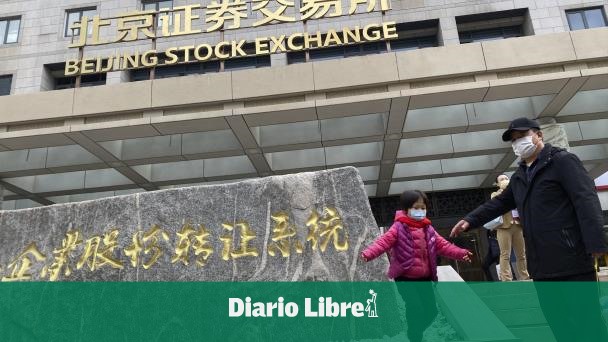He Bank popular of China (BPC, central bank) will start on the 15th an issue of 60,000 million yuan (8,185 million dollars, 7,934 million euros) in bonusesthe largest that has been undertaken so far through Hong kongwith the aim of supporting the type of change of the yuan.
In a statement published today, the Monetary Authority of Hong kong (HKMA, the ‘de facto’ central bank of the semi-autonomous region) announced that these bonuseswhich had already been advanced in recent days by the specialized press of the Asian country, will have an expiration of six months.
Bloomberg highlights that this is a record figure for this type of BPC auctions through the former British colony since they began in 2018 and points out that, with this, the institution will absorb the amount of yuan currently available in the marketthus generating demand for the currency.
“The absorption of liquidity will probably limit the financing of the yuan ‘offshore’ in the short term, but the strength of the dollar and the continuous uncertainties about duty will likely continue to exert downward pressure on the yuan“Wee Khoon Chong, an analyst at BNY, told the media.
The Chinese central bank did not pull emissions of bonuses to ‘strangle’ short positions from 2023, and shortage forecasts liquidity in Hong kong have sent the financing costs in yuan in that city at maximums since mid-2021.
In recent months, the BPC has repeatedly set guys of change officers – in front of those who rate ‘onshore’, the one traded in Chinese markets, can only fluctuate a maximum of 2% daily – stronger than expected to defend its currency, also making public the promise that it will maintain the stability of the exchange rate change.
Almost at a minimum since 2007
This same week, the yuanboth in his rate ‘onshore’ as in ‘offshore’, was very close to falling to the lowest levels since the end of 2007.
From mid-2024 to the end of September, the worth of the yuan had drawn an upward trend due to expectations of price reductions guys in the US and a significant expansion of measures to support the economy China facing a less brilliant recovery than expected after the years of ‘zero covid’.
However, the curve has inverted due to the disappointment of investors with the measures announced in this regard by Beijing and the electoral victory in the United States of Republican Donald Trump, who began the war commercial against China in 2018 during his first term (2017-2021) and has promised new duty to imports from the Asian country.
Although the consulting firm Capital Economics estimated the possible impact of duty Americans of 60%, he also indicated that Beijing will allow a depreciation of the yuan to cushion that impactwhich would limit the impact of these rates to 0.7% of GDP and to 0.5% in the event that the transshipment of goods through third destinations is not stopped.
For its part, Oxford Economics believes that China would allow a depreciation between 20 and 25% if Trump kept his promise to raise taxes. duty 60%, although he sees it as more realistic for rates to rise from the current average of 17% to 30%, which would translate into a loss of worth between 6 and 8% for the currency China.















